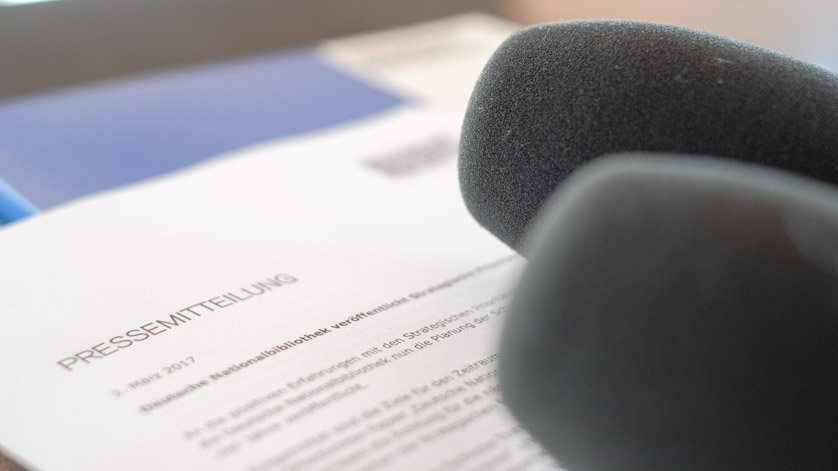One million online publications at the German National Library

Press release: 24.1.2014
Users can now access roughly one million online publications in the reading rooms of the German National Library. The stocks have doubled in the last 18 months: roughly 300,000 online publications were added in the first 10 months of 2013 alone. The first million mostly comprises eBooks (49%), ePaper editions (34%), university publications (14%) and online journals (3%). Talking books (audio files), which are also covered by the legal deposit regulation, have also begun to be collected.
The German National Library collects and processes most of its online publications using automatic procedures. Depositors can make use of a web form, an OAI interface or a bulk-processing "push" system in the form of a “hot folder”. Here, depositors can submit the online publications and the related metadata to a server of the German National Library, thereby triggering the automatic import.
All the transmission methods deploy the very highest security standards: depositors can select HTTPS (HyperText Transfer Protocol Secure) for OAI harvesting. The transfer URL needed for collection is used once only and then deleted immediately. SFTP (Secure File Transfer Protocol) can be used for hot folder uploads.
Metadata are delivered to the Library along with the objects, regardless of the method used. They are converted into catalogue entries and are then immediately visible as such in the catalogue. The descriptive data for journal articles or issues can be submitted either in the old productive format XmetaDissPlus or now also in MARC21. This opens up a great deal of potential for the publishers of journals.
There are a total of roughly 3000 contacts between depositors and the German National Library at present, ranging from individuals and organisations through to (research) institutes, publishing service providers and publishers.Service providers now include the submission of online publications as digital deliveries in their range of services. Such services are used by the majority of publishers, including many which only produce small numbers of eBooks.
Online university publications were the first to be ingested when the collection of online publications began in 2006. The number of these has grown continually and exceeded 100,000 publications five years later. The digital versions of daily newspapers have been archived as ePapers since the start of 2011. The collection of ePapers now covers 630 daily and 16 Sunday newspapers and roughly 17,600 issues are currently received each month. The number of publications collected is set to increase to roughly 1,100 titles in the coming months.
Websites and audio files (talking books) were added in 2013, meaning that web-specific formats are now being systematically collected and archived for the first time. The integration of MARC21 significantly expanded the range of options for the automatic deposit of journals and articles. The integration of further bulk processing metadata formats such as CrossRef and NLM is planned for 2014. There are also plans to collect music audio files.
It is only possible to use online publications in the reading rooms of the German National Library in Leipzig and Frankfurt am Main. Only if the depositor has granted appropriate rights to the Library can the relevant online publications also be used worldwide via the internet.
Background
The German National Library is the central archiving library and national bibliography centre of the Federal Republic of Germany. The amendment of the Law regarding the German National Library (DNBG), introduced in 2006, expanded the collection mandate to include non-physical media publications (online publications). The stocks can be used in the reading rooms of the German National Library in Leipzig and Frankfurt am Main. The German Music Archive, the German Museum of Books and Writing and the Anne-Frank-Shoah Library are housed in Leipzig, and the German Exile Archive 1933-1945 is located in Frankfurt am Main.
Further information
Online Publications
Contact person
Martin Cremer
Contact: s.jockel@dnb.de

